Mr Sun – Mr Golden Sun – Don’t Shine Down on Me!
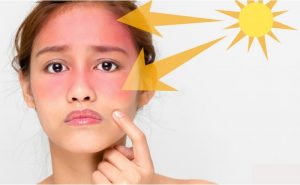
It has been taught to us right from the time we were little toddlers that being out in the sun is great for us. And it is partially true that moderate sun exposure is great for health. From being a great source for generating vitamin D in our body… to generating an overall sense of wellness when we are outdoor in the sun.
However we do easily forget that sun is a very powerful energy source and the energy it delivers in the form if UV rays tends to seriously affect our skin. UV rays (ultra violet rays) are energy rays from the sun which are not visible to us and yet constitute a huge amount of energy that our body is exposed to.
UV rays are also of two types – the UVA rays which affect the deeper layers of the skin and the UVB rays which affect the superficial layers of the skin.
Is sun really the big bad monster?
Well the effects of sun exposure are far reaching on our skin. Here are some of them. I would like you to decide.
- Tanning – This the most basic effect in which case the skin develops pigmented patches on the sun exposed areas.
- Sun Burn – Prolonged exposure to sun often creates itchy red patches on the skin with blistering or peeling of skin.
- Freckles & Lentigenes – These are tiny red to brown spots that form on sun exposed areas.
- Melasma – These are brownish patches seen on cheeks, nose and forehead.
- Premature ageing – Ageing of skin is caused by damage or reduction in the collagen and elastin under the skin. This results in fine lines and wrinkles. UV rays directly affect the collagen and elastin levels.
- Allergic reactions – Although rare these are seen on the sun exposed area of the skin as tiny red or skin coloured patches.
- Thinning of skin and capillaries – In this case the blood vessels under the skin become more prominent.
- Skin cancer – It is seen more in fair skin individuals with a positive family history. Sun exposure is a definite associated cause for the same.
OK now how do we ward off the monster?

Well as always prevention is better than cure and hence the focus always needs to be on reducing sun exposure by all possible ways.
1.Cover your body
There is no substitute for the simplicity of covering up your body when out in the sun. Remember the following
- Full Length Clothes
- Caps and Hats
- Sun Glasses
- Use Umbrellas
2. For exposed areas: Use a Sun Screen
Sun screens are the best source of protection for exposed areas. Apply sun screen before leaving from home and refresh it every four to five hours if out in the sun continuously.
In selection of sun screen although the SPF value is important it is not the only criteria. A sun screen with SPF value greater that 15 is adequate. Most sunscreens are broad spectrum sun screens and protect against UV-A and UV-B rays.
Note that in recent times water proof sun screens are also available which can be used when going swimming or during rains. (Yes sunscreens are advised even during rains!)
The biggest myth about sun screens is that they are not safe to use on a daily basis. This is incorrect and as a matter of fact they are safe for children too.
But I already have sun damage. Can I reverse it?
If you find your skin showing any of the effects mentioned above. Please get in touch with a dermatologist. The doctor will treat the sun damaged skin with oral and topical medications.
Also it is interesting to note that quite a few signs of sun damage like pigmentation and the unevenness in skin tone can be handled by a trained dermatologist with some procedures like:
- Chemical Peels – These are medications which work on controlled damage of the old skin and help in growth of fresh skin.
- Laser Skin Toning and De-tanning – Lasers work by selectively affecting the pigmented area of the skin. Laser exposure results in lightening of skin and also evening out the skin overall.
- Skin Polishing – Skin polishing again works by controlled abrasion of the old damaged skin and stimulating fresh skin growth.
- Skin Rejuvenation with Iontophoresis – Iontophoresis is a mechanism by which the dermatologist uses the power of electrical ions to carry medication into the deeper layers of the skin.
- Anti-Ageing treatments – Sometimes the damage to skin in the form of wrinkles and lines is near permanent. This can be helped by means of using botox and fillers.
This article is one in a series of articles on common skin conditions by Dr. Sejal Saheta – MD, DNB – Dermatology and Venereology. The objective of this series is to educate the reader and help them take precautions against various skin conditions they come across on an everyday basis. These articles are not meant to be used by patients for self-diagnosis or for avoiding proper medical treatment.




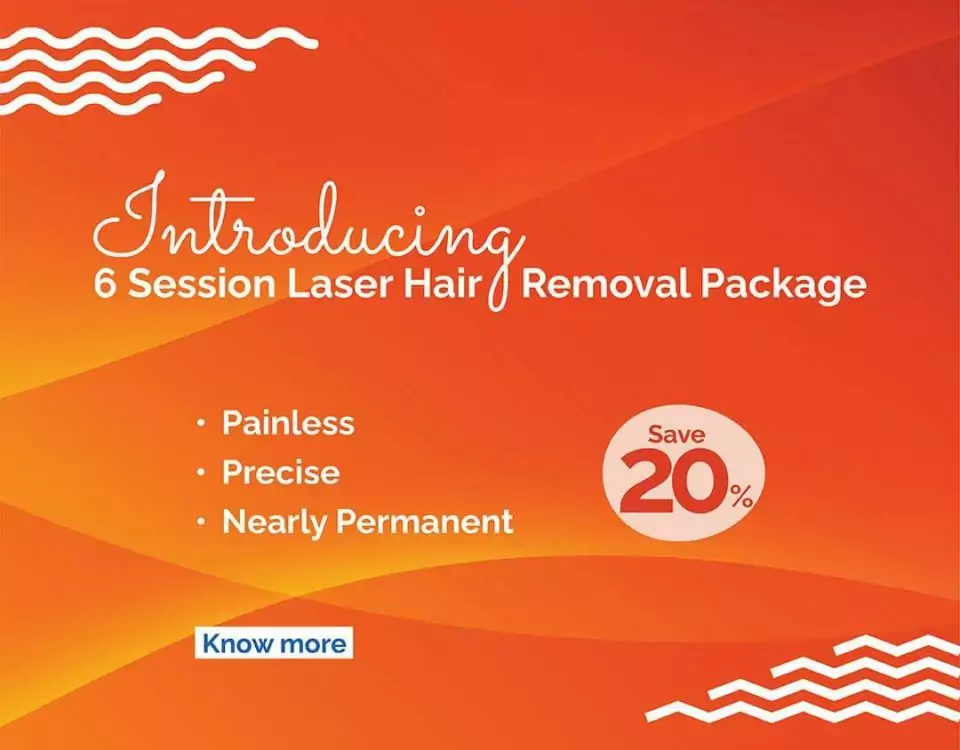

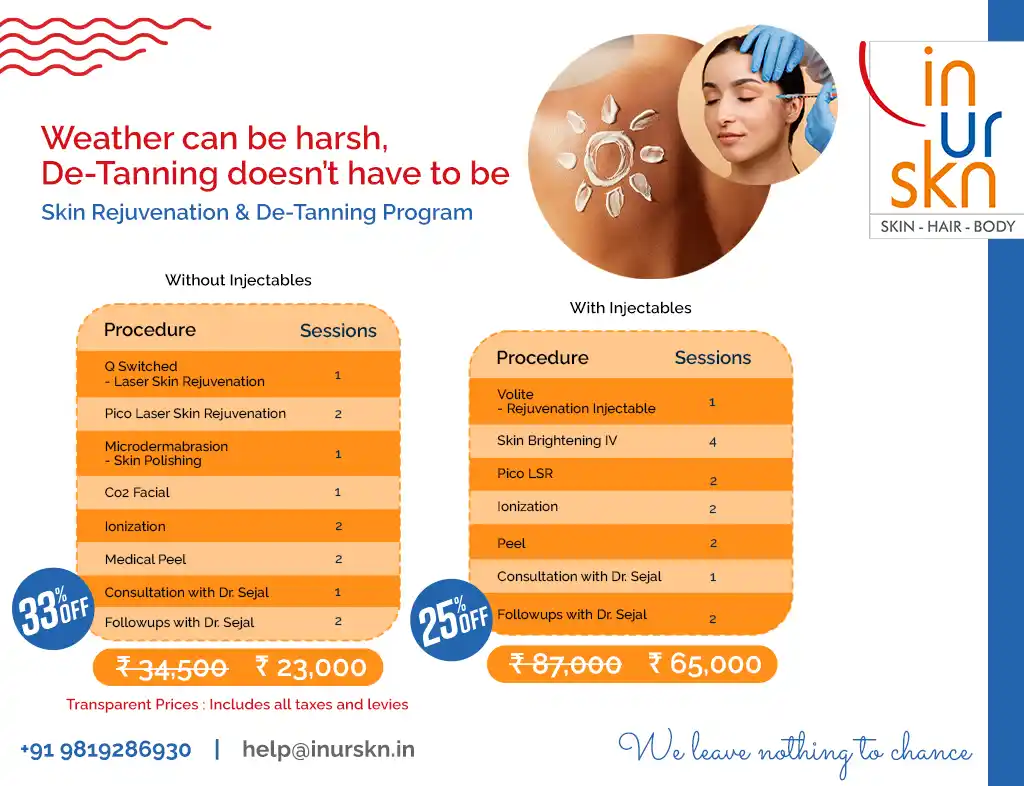















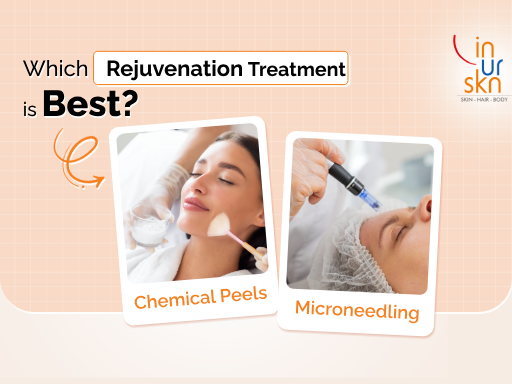

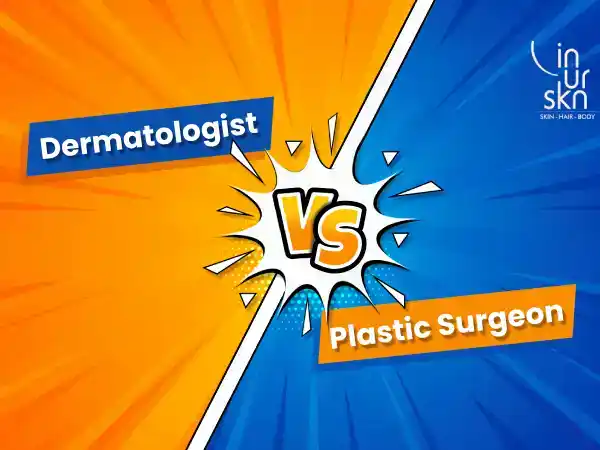
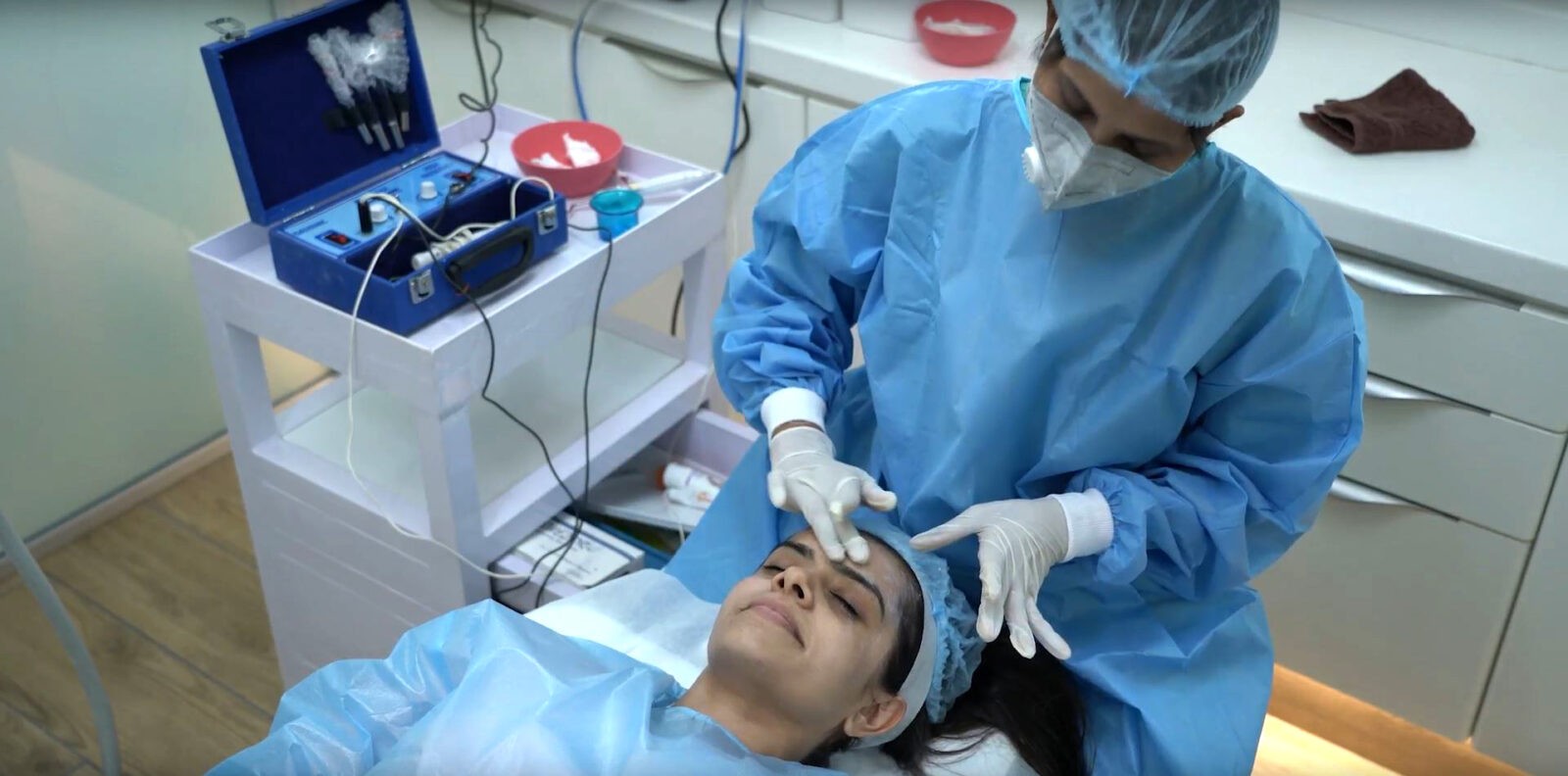
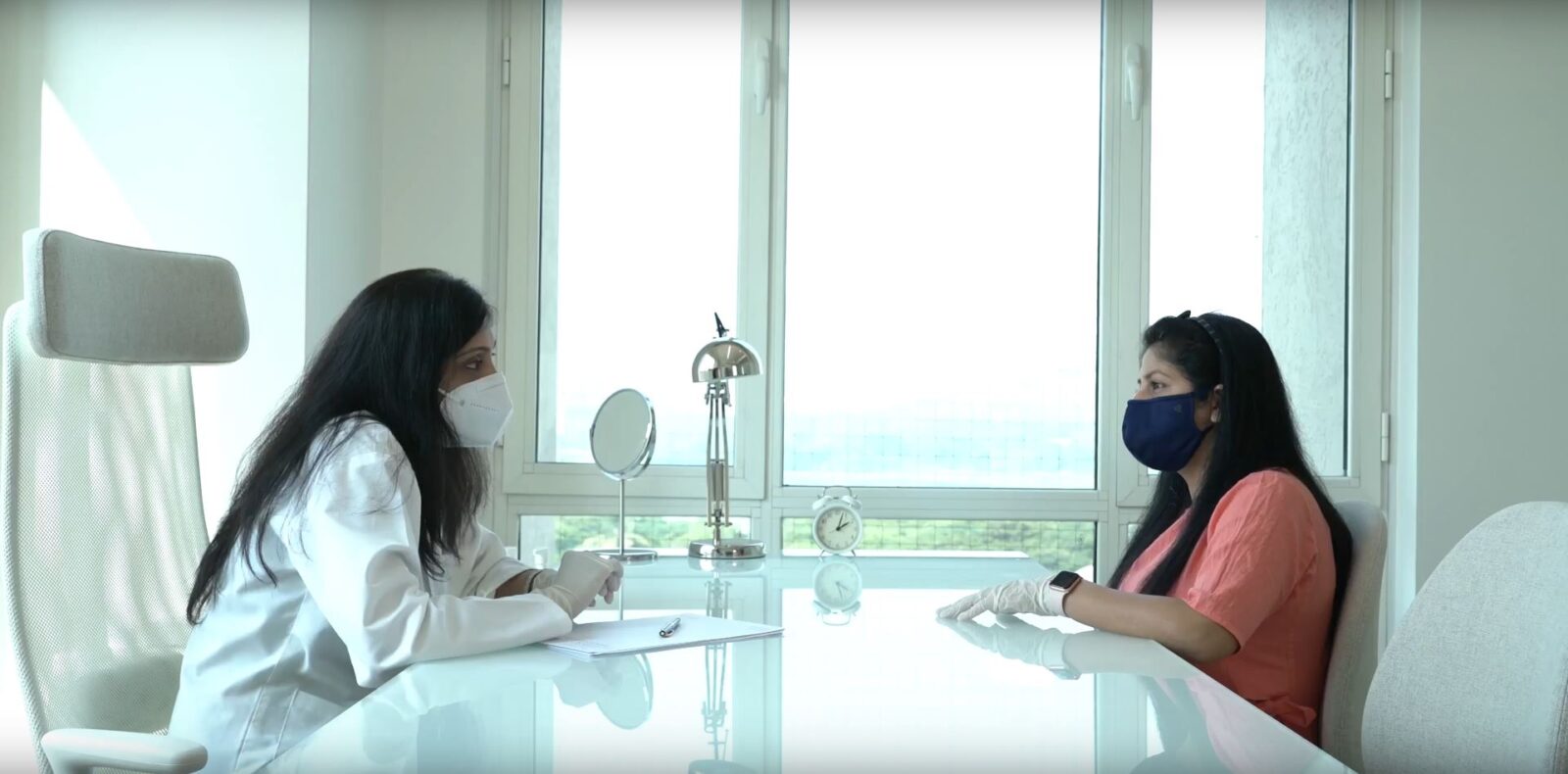

 Call us
Call us Book Appointment
Book Appointment Enquire
Enquire Location
Location




